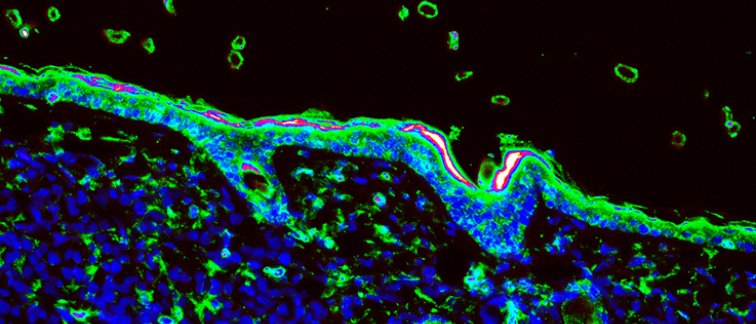In the complex landscape of cancer, the body's immune response plays a vital role. Tumors often house a significant population of immune cells called T lymphocytes. Although able to infiltrate tumors, tumor-mediated counter mechanisms can effectively shut them down, rendering these T cells unable to actively fight the cancer cells.
Immunotherapy aims to invigorate the body’s immune system to fight cancer. Many types of immunotherapies are focused on re-activating the desirable anti-tumor T cells within the tumor site by interfering with the cancer-mechanisms that hold them in check. These treatments have led to unprecedented success for some patients, with long-term responses. However, a sizable subset of patients does not respond to immunotherapy at all – hinting at unknown mechanisms that paralyze tumor-infiltrating T cells (TILs) and the need for new therapies that unleash the dormant T cells’ destructive power.
Metabolic Enzymes: The Hidden Influencers
In close collaboration with Suzan Stelloo, a postdoc in the lab of Michiel Vermeulen at Radboud University, Kaspar Bresser generated a comprehensive mass spectrometry dataset (proteome) of dysfunctional TILs isolated from non-small cell lung cancer patients. While analyzing this proteomic landscape, he and Suzan noted that the abundance of several metabolic enzymes was very abnormal.
“Some metabolic enzymes appeared to be deregulated in dysfunctional TILs,” explains Kaspar. “This is extremely interesting for two reasons. One, energy metabolism pathways are known to affect the functional state of T cells. And two, some metabolic enzymes control the cellular amounts of molecules required for epigenetic modifications—which turn genes on or off—and thus ultimately affect the functional programming of the T cell.”
Deciphering the Metabolic Connection
To investigate the connection between the dysregulated metabolic enzymes and T cell dysfunction, Kaspar will study what happens to both energy metabolism and epigenetic programming of T cells when the activity of these biological catalysts is slowed down or stopped.
“I also plan to test if the inhibition of these enzymes can be applied in a preclinical model for immunotherapy,” adds Kaspar.
If the reinvigoration of TILs proves successful, it would mean a pivotal breakthrough that could open a whole new avenue of treatment for cancer patients.
For more information, contact Kaspar Bresser at Sanquin.
Project Title: Re-programming cancer-associated dysfunctional T-cells through metabolic circuits
Text by Laura Roy.
Header photo: Tumor cells (blue) attacked by T cells (green), source Adobe Stock.
This article was created for Cancer Center Amsterdam.
Follow Cancer Center Amsterdam on LinkedIn & Twitter /X.
© 2024 New Haven Biosciences Consulting– All rights reserved.

